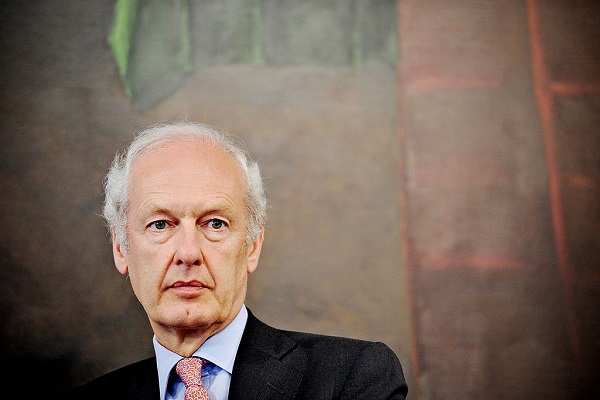How to be a better investor: Lesson 6
Here's how to tell if the management is a dud, or a diamond and questions that investors need to ask.
31st March 2021 13:17
by Julian Hofmann from interactive investor
Managers have a history, just like everyone else. Have they learnt from any mistakes? Is there a track record of success, or failure? The final episode in this six-part series looks at how to access and assess the information available to you.
The cult of personality is as much a part of investment decisions as any other field where communication, a certain level of showmanship and an ability to make rational decisions under pressure is a highly valued asset.
Successful individuals have a following in the investment world, and the companies and funds they lead undoubtedly benefit from the power of their reputation. Good managers tread a delicate line: too much initial success can lead to hubris and catastrophic mistakes, particularly if risk-taking is involved. By the same token, excessive caution can breed conservatism, resistance to change and ultimate irrelevance.
So how can you tell during the due diligence process whether the management is a dud, or a diamond? What are the key questions that investors need to ask?
Out of the comfort zone
Star fund managers have a particular hold on investors’ collective imagination. It is an area of fierce debate as to whether managers beat the market over the long-term, or simply revert to an average performance over a given timeframe.
Still, managers that gain a following can exert huge market power simply through the sheer volume of investment capital that flows into their funds from dedicated followers. Arguably, that makes watching and assessing their strategy even more important.
When you are assessing a fund, I find that the important question to ask is whether the strategy is within the comfort zone of the manager running it? In basic terms, does the manager know enough about their investment area to allow them to make informed and rational decisions?

Bolton Shanghaied
Anthony Bolton (pictured above) was one of Fidelity’s most respected fund managers, running its Special Situations fund for 28 years and delivering market-beating returns year in, year out. So, coming out of retirement, to set up a China fund in 2010, raised quite a few eyebrows, particularly as Bolton had no track record in Asian investments and the market had already acquired a “Wild East” reputation.
Four years later, Bolton handed the fund over to a successor after wrestling with a long bear market and some seriously dodgy corporate governance. He was humble enough to admit his mistakes and was quoted as saying that “the Chinese are great liars.” Nobody lost money in the venture in the medium term, but it is a cautionary tale about taking a leap into the unknown.
One of the strengths of fund management is that it exists in a largely collegiate system. There are risk control protocols to follow, an investment strategy that needs to be signed off by a supervising board and due diligence is a full departmental function.
Arguably, it is when fund managers move out of this system of checks and balances that errors can stack up.

We’ve got to talk about Neil
One of the more difficult episodes in recent fund management history is the spectacular decline in the reputation of Neil Woodford (pictured above), from a highly respected and effective fund manager at Invesco, to almost a hate figure for many small investors who had/have savings trapped in his eponymous funds.
There are two lessons to be drawn from the debacle:
Firstly, if your due diligence turns up the fact that funds are investing in lots of illiquid assets that can’t be sold easily such as property, or unquoted private companies, then leave it well alone. Time and again funds are burned by the liquidity issues inherent in such investments. You would think they would know better.
Secondly, the quality of a manager is also determined by the environment in which they work. Arguing the case for an investment and debating this with colleagues can lead to better decision-making. Find out about the quality of the supervision by checking the histories of the key compliance officers within a fund. This can give you an idea of how good the back-office support is for fund managers; if the managers are challenged consistently then this will cut out the major strategic mistakes.
Company management: the good, the bad and the ugly
When it comes to company managers, you can generally categorise them into certain archetypes.
Engineering companies - Run by gruff types, probably also members of the Campaign for Real Ale.
Banks - Expensive suits, good haircuts, no discernible interests, or personality.
Pharmaceutical & biotech companies - Broadly like bankers but with a more elite educational background (think Oxbridge, Harvard Business School, INSEAD), or otherwise clever scientists with awkward small talk.
Property companies - These always have a bit of a wide-boy edge, would probably be selling nylons if we had rationing.
Security companies - Always run by ex-coppers, or a former army officer.
Unlike a fund, a company markets a product or a service and not their management strategy. Therefore, the problem for investors is that understanding the company’s inner workings is largely beyond their grasp, but you can still gain a few insights if you ask yourself the right questions.
For instance, is a company struggling to fill key positions, and do managers seem to come and go? That could be a sign of a difficult working environment or internal disagreements over direction and strategy. In this situation the share price tends to drift aimlessly, which is always a giveaway.
Do managers understand how to create deep value in their companies by investing in R&D?
Is corporate communication honest and direct without being excessively slick, and do actions match the rhetoric?
“A good manager will always be followed by a poor one.”
This is a controversial statement and, of course, there are exceptions, but, as a rule the more dominant a managerial figure the harder it will be for a successor to make their mark. This may not necessarily reflect on the ability of the new guy – sometimes a dominant CEO simply builds an organisation that only they have the personality to run.
A good example of this would be Sir George Mathewson, the previous CEO of Royal Bank of Scotland (now NatWest Group (LSE:NWG)) before Fred Goodwin. He created the template for its aggressive expansion based on a very collegiate style of management, but handed it over to someone who, by most accounts, was excessively concerned with detail – as befits a trained accountant - and disliked discussion of key issues. The result was disaster.
These articles are provided for information purposes only. Occasionally, an opinion about whether to buy or sell a specific investment may be provided by third parties. The content is not intended to be a personal recommendation to buy or sell any financial instrument or product, or to adopt any investment strategy as it is not provided based on an assessment of your investing knowledge and experience, your financial situation or your investment objectives. The value of your investments, and the income derived from them, may go down as well as up. You may not get back all the money that you invest. The investments referred to in this article may not be suitable for all investors, and if in doubt, an investor should seek advice from a qualified investment adviser.
Full performance can be found on the company or index summary page on the interactive investor website. Simply click on the company's or index name highlighted in the article.